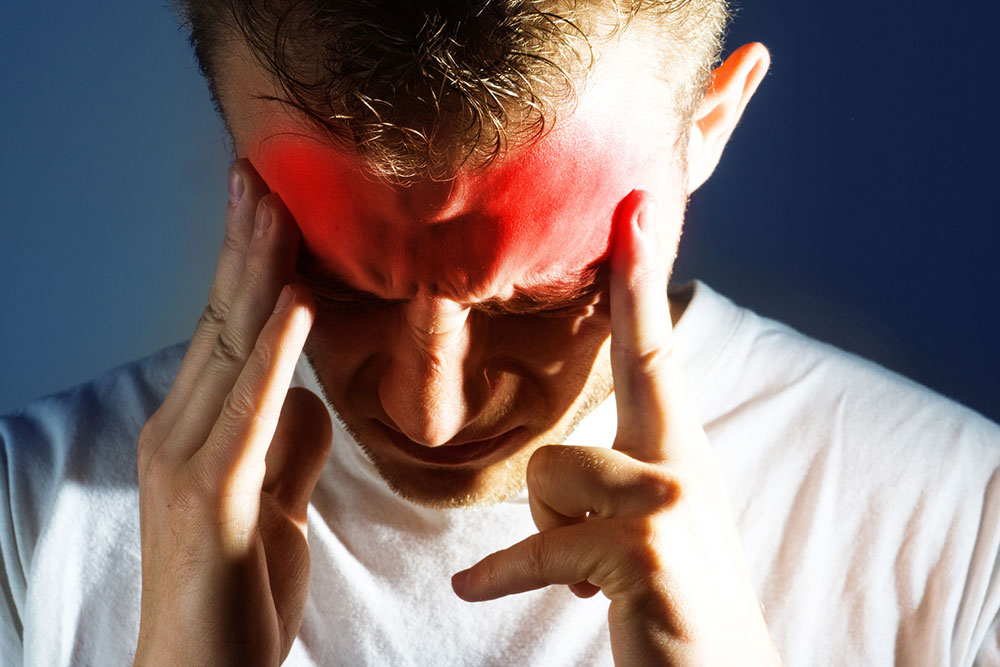Tension Headache Symptoms and Home Remedies
Headaches are very common these days. Long working hours on the laptop and an excessive use of gadgets often lead to a headache. Most people ignore headaches or get temporary relief by taking painkillers. But, do you know that a headache can be the first symptom of a deadly disease? Whether it’s just a tension headache or a sinus problem, ignoring a headache is never a bliss.
Headaches are one of the most common chronic pains (second only to back troubles). A headache could be a symptom of some anguished, life-threatening illnesses or it could be as simple as anxiety.

Although not all headaches are the same, they all share at least one thing in common—they cause pain. Many headaches also cause other unwanted symptoms, including nausea and vomiting. This article highlights the symptoms of one of the most common types of headache, which is a tension headache and looks at the treatment options for the same.
A tension headache
One of the most common types of a headache, a tension headache causes pain or discomfort in the head, the neck, and the scalp. It is often associated with tightness of muscles in these areas. Tension headaches are of two types, namely, episodic tension headaches and chronic tension headaches.
Symptoms
People with tension headaches generally complain of the following symptoms:
Episodic tension headaches (they occur for less than 15 days per month)
- Pain is mild to moderate, a constant band-like pain or pressure
- Pain affects the frontal, top, or sides of the head.
- Pain generally appears gradually and regularly develops in the middle of the day
- Pain may last from 30 minutes to several days
Chronic tension headaches (they occur for more than 15 days per month)
- Pain may fluctuate in severity throughout the day but is roughly always present.
- The pain grows and extends over a prolonged duration of time.
Common symptoms of tension headaches include:
- A headache upon waking up
- Difficulty falling asleep and staying asleep
- Chronic fatigue
- Irritability
- Disturbed concentration
- Mild sensitivity to light or noise
- General muscle aching
Treatment
Medications
“Just about any over-the-counter (OTC) pain reliever can provide relief for non-migraine headaches, also identified as tension headaches”, says Jack M. Rozental, MD, Ph.D., a headache specialist at Northwestern Memorial Institution in Chicago. “Medications that consist of purely one drug (acetaminophen, ibuprofen, naproxen, or aspirin) are an efficient headache treatment,” he says, “as are those that combine a consolidation of aspirin, acetaminophen, and caffeine”.
Regular usage of any pain reliever, including OTC medicines, can also lead to what is known as rebound or medication-overuse headaches,” says Rozental. To deal with this type of a headache, all pain-relieving medications must be stopped for at least three months. If you’re regularly taking large dosages of OTC medications to treat recurrent headaches, communicate with your physician about your symptoms.
Home remedies
Fortunately, many headaches can be at least partly alleviated without medication, which will help reduce your demand for pain relievers and lessen your risk of rebound headaches. Here are some headache relief tips which you can keep handy to get rid of a tension headache:
Close your eyes and rest – This is a powerful headache treatment for a migraine headache and it can help relieve a tension headache as well. Sit in a quiet, dark place with your eyes closed and just relax for a moment. “Patients with a migraine instinctively seek out a dark, quiet atmosphere in which they can go to bed for at least a few hours,” Rozental says. He goes ahead to state, “sleep frequently diminishes or gets rid of the pain”.
Massage your neck and temples – Rubbing your neck and temples can increase blood flow to the areas and soothe tension headaches.
Warm up your neck – Try placing a heating pad or a warm cloth around your neck and the base of your skull to mitigate tension headaches. If that doesn’t help, you can apply an ice pack instead to check if that provides headache relief.
Relax – Meditate, breathe deeply, and try to visualize a peaceful image. “Various relaxation techniques can undoubtedly help patients who suffer from ‘muscle contraction’ headaches”, says Rozental.
Minimize stress – If you have a bad headache, try to step aside from stress, literally. Avoid noisy environments, leave office a little early if you can, or request your partner to take care of assignments or the kids.
Watch what you eat and drink – What you put into your body can have a considerable impact on your headaches. Rozental advises limiting caffeine and alcohol and avoiding cigarettes. He also says regular meals are necessary, especially for people who have headaches from low blood sugar. He recommends, “do not skip meals, especially breakfast”.
A headache can surely put your movements on hold until you get better, but having the proper treatment can help you feel better, quicker. Instead of stumbling through your day with a headache, take time out to care for yourself. Medications can help to stop the pounding in your head, but a little relacation and time for yourself can help as well.

